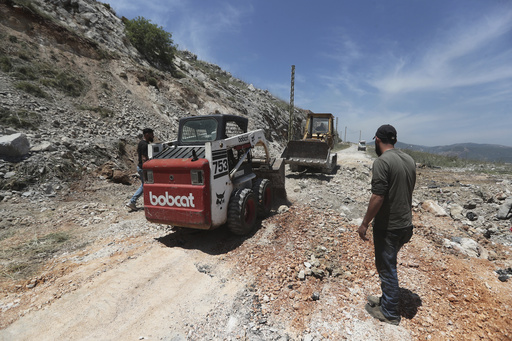In the Gaza Strip, a dire situation is unfolding as Israel continues to restrict humanitarian aid into the region, leading to significant shortages of food and essential supplies. This blockade has forced prominent aid organizations like the World Central Kitchen to halt their operations in the war-stricken area due to depleted resources. The organization, previously supplying 133,000 meals daily and producing 80,000 loaves of bread, has stopped these activities as their supplies have been nearly exhausted in Gaza.
The severe lack of food escalates the crisis for Gaza’s residents, who have been enduring hardships from the ongoing 19-month conflict. Earlier in April, the World Food Program disclosed the depletion of food stocks in Gaza, which had been a lifeline for many Palestinians under the ongoing Israeli blockade.
As Israel reaches the third month of this blockade, increasing hunger and malnutrition become a significant concern. Aid organizations face challenges as their supplies run thin, threatening the health and sustenance of thousands in the region. The blockade, imposed on March 2, was later followed by resumed military actions on March 18, aimed at pressuring the militant group Hamas to free hostages. Rights groups criticize the blockade as a “starvation tactic,” potentially violating international law.
Community soup kitchens, like those operated by World Central Kitchen, are vital for countless Palestinians seeking daily sustenance. However, reports from the UN humanitarian office (OCHA) indicate that around a third of these communal kitchens supported by the UN have closed over the past ten days due to food and fuel shortages, with further closures anticipated soon.
Some still-operational sites witness chaotic scenes as desperately needy individuals clamor for the meager rations available. In contrast, fuel shortages have also resulted in the shuttering of bakeries and a slowdown in water distribution services. Meanwhile, despite having trucks laden with food and supplies stationed in Egypt, Jordan, and Israel, World Central Kitchen finds itself powerless to proceed without receiving official authorization to move the aid into Gaza.
Israeli authorities persist with the blockade, voicing concerns regarding the control of humanitarian aid by Hamas. Spokesperson David Mencer remarked that Israel is exploring methods to ensure that help reaches those truly in need rather than Hamas. He placed the responsibility for Gaza’s hunger on Hamas, stating that the blockade would end once the group disarmed. Meanwhile, aid organizations refute claims of significant aid diversion to militants, emphasizing the UN’s rigorous monitoring measures.
The humanitarian crisis is further underscored by the alarming malnutrition rates among Gaza’s children, with the World Health Organization reporting over 10,000 cases of acute malnutrition since the year began. March alone saw an 80% rise in such cases compared to the previous month, with half the nutrition centers around Gaza unable to function due to displacement and damage from ongoing hostilities.
Amidst escalating tensions, violence continues to claim lives. The Palestinian Health Ministry noted that 106 individuals were killed in recent airstrikes, while 367 were wounded in the past 24 hours alone. The death toll since the resumption of hostilities on March 18 has climbed to over 52,760, with a significant number being women and children.
The conflict extends beyond Gaza, with Israeli airstrikes hitting southern Lebanon. At least one person died, and eight others were wounded in the strikes targeting Hezbollah infrastructure. The tensions between Israel and Hezbollah persist despite a ceasefire late last year, leaving a trail of casualties and instability.
In another development, prominent Palestinian journalist Ali Samoudi has been placed under a six-month administrative detention by Israeli authorities, a measure criticized for its lack of transparency and due process. Despite lacking sufficient evidence for formal charges, Samoudi remains detained, emphasizing the contentious nature of administrative detentions in the region.


